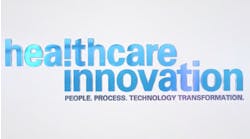Clinical data registries are playing an increasingly important role in quality improvement, value-based care and research, and the pace of new registry development is increasing. For instance, the Consortium of Multiple Sclerosis Centers has developed an MS registry and longitudinal database of clinical records and patient-centered outcomes.
The mission of the North American Registry for Care and Research in MS (NARCRMS) is to provide clinicians and researchers with a greater, more. Through information sharing, NARCRMS seeks to improve the understanding of MS and facilitate care at every level.
Physician-collected data will include neuroimaging, genetic markers, clinical and cognitive assessments, and specimen collection and testing for the study and validation of biomarkers of disease progression. Patient-reported outcomes focused on the challenges of MS and its impact on daily life will complement physician-generated information.
"NARCRMS addresses a pressing need in MS research and care, "said Cyndi Zagieboylo, president and CEO of the National MS Society, in a prepared statement. "By collaborating with NARCRMS, we can more effectively utilize data to advance our understanding of MS and do more to help people with MS live their best lives."
NARCRMS is collaborating with other MS registries, clinicians, researchers, and people living with MS. It will allow for the linkage of centers and facilitates along with regional analysis of data by state, region, and zip code. NARCRMS will facilitate the recruitment of participants for clinical trials as the registry grows.
To date NARCRMS has recruited 10 centers and enrolled 113 patients with an additional three centers expected to join shortly.
This clinician-driven registry builds on a parallel patient-driven registry called the North American Research Committee on Multiple Sclerosis (NARCOMS). NARCOMS is the oldest patient-driven registry in the U.S. It uses the power of the patient experience to improve clinical care and quality of life for persons living with MS.

